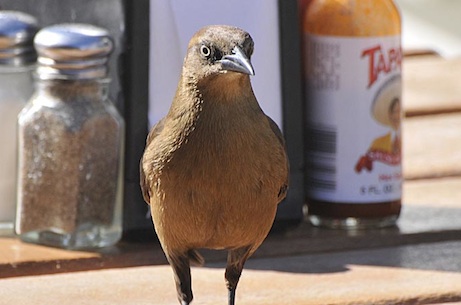
For a bird with a relatively small brain, the great-tailed grackle is very innovative. A new grant will help Corina Logan find out why.
A Gates Cambridge Alumna has won a prestigious National Geographic Society grant to help her study a bird species which has developed innovative ways to find food despite having a relatively small brain.
Corina Logan has been awarded a $14,172 Waitt Grant from the National Geographic Society. The grant for early years researchers funds projects “that require venture capital, supporting exceptional projects while foregoing a time-consuming peer-review process”.
Corina [2008] did a PhD in Experimental Psychology at the University of Cambridge and is now a SAGE Junior Research Fellow at the University of California, Santa Barbara studying bird cognition in the wild. She says: “This grant will fund most of my expenses for setting up a field site in Santa Barbara, California to study cognition in a highly innovative bird, the great-tailed grackle. Grackles have many different ways of finding food, more than would be expected for their relatively small
brain size. I will investigate how they solve their foraging problems by testing their knowledge of their physical and social world. Are they solving their foraging problems by accident because they are very curious, or are they solving them on purpose?”
The grant will also fund a trip to New Caledonia to do comparative tests with New Caledonian crows in collaboration with Dr Alex Taylor from the University of Auckland. Corina adds: “Crows have large brains, use tools, are very innovative and extremely clever at solving cognitive tasks. By comparing test performance between crows and grackles, I will be able to identify specific ways in which large brains provide cognitive benefits.”
Picture credit: Adam Lewis.












